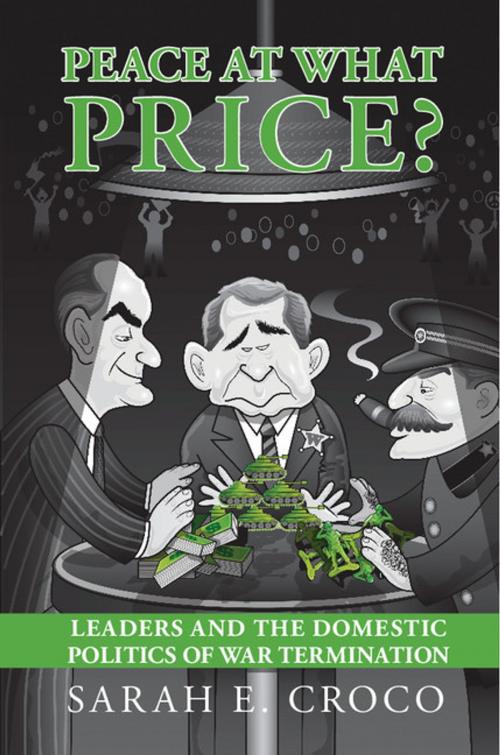Peace at What Price?
Leader Culpability and the Domestic Politics of War Termination
Nonfiction, Social & Cultural Studies, Political Science, Government, History| Author: | Sarah E. Croco | ISBN: | 9781316289242 |
| Publisher: | Cambridge University Press | Publication: | March 26, 2015 |
| Imprint: | Cambridge University Press | Language: | English |
| Author: | Sarah E. Croco |
| ISBN: | 9781316289242 |
| Publisher: | Cambridge University Press |
| Publication: | March 26, 2015 |
| Imprint: | Cambridge University Press |
| Language: | English |
Why do some leaders stay in wars they are unlikely to win? Why do other leaders give in to their adversaries' demands when continued fighting is still possible? Peace at What Price? strives to answer these questions by offering a new theoretical concept: leader culpability. Culpable leaders - those who can be credibly linked to the decision to involve the state in the war - face a significantly higher likelihood of domestic punishment if they fail to win a war than non-culpable leaders who do the same. Consequently, culpable leaders will prosecute wars very differently from their non-culpable counterparts. Utilizing a large-N analysis and case illustrations, the book's findings challenge the conventional wisdom regarding the relationship between war outcomes and leader removal and demonstrate the necessity of looking at individual leader attributes, instead of collapsing leaders by regime type. The book also offers new insights on democracies at war and speaks to the American experience in the wars in Iraq and Afghanistan.
Why do some leaders stay in wars they are unlikely to win? Why do other leaders give in to their adversaries' demands when continued fighting is still possible? Peace at What Price? strives to answer these questions by offering a new theoretical concept: leader culpability. Culpable leaders - those who can be credibly linked to the decision to involve the state in the war - face a significantly higher likelihood of domestic punishment if they fail to win a war than non-culpable leaders who do the same. Consequently, culpable leaders will prosecute wars very differently from their non-culpable counterparts. Utilizing a large-N analysis and case illustrations, the book's findings challenge the conventional wisdom regarding the relationship between war outcomes and leader removal and demonstrate the necessity of looking at individual leader attributes, instead of collapsing leaders by regime type. The book also offers new insights on democracies at war and speaks to the American experience in the wars in Iraq and Afghanistan.















